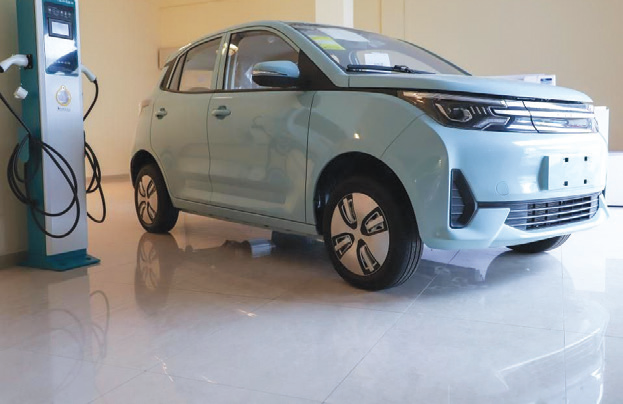
ADDIS ABABA – The Ministry of Transport and Logistics (MoTL) has announced an ambitious plan to introduce over 500,000 electric vehicles (EVs) across Ethiopia within the next ten years, aiming to make the country a continental leader in e-mobility.
Speaking to The Ethiopian Herald, MoTL Transport Service and Supervision Sector State Minister Bareo Hassen stated that the government is actively working to implement this goal, which includes the deployment of 4,800 electric buses—both urban and cross-country.
Currently, Addis Ababa has about 110,000 operational e-vehicles and over 90 fast-charging stations. However, the capital alone requires around 1,176 charging stations to effectively support an expanding e-mobility network. An additional 1,050 charging stations are also needed across the country. So far, only a few regional cities—Bahir Dar, Gondar, Dire Dawa, and Jigjiga—have begun installing charging stations. A second phase of expansion in Addis will see the installation of 54 more stations.
“E-mobility is the only viable solution for Ethiopia’s transition to a sustainable transport system, especially considering the country’s abundant renewable energy resources such as hydro, geothermal, and biofuels,” Bareo said. He stressed that despite this potential, Ethiopia still relies heavily on fossil fuel imports.
Ethiopia’s e-mobility strategy is designed to cut carbon emissions by 20%, mitigate global warming, and foster economic development.
The nationwide electric vehicle implementation strategy—developed in collaboration with 18 federal institutions and key stakeholders—is set to be launched soon. The strategy also includes expanding infrastructure in both on-grid and off-grid areas and encouraging private sector participation.
MoTL is also working to tap into carbon financing opportunities in partnership with relevant international and domestic bodies.
Besides lowering transportation costs, e-vehicles offer multiple benefits, including reducing environmental impact and improving public transport services. The government has prioritized e-buses, ambulances, fire trucks, and security vehicles on highways.
To promote the adoption of e-vehicles, the government is creating an enabling environment through incentives. For instance, fast-charging stations and components used for local e-vehicle assembly are exempt from import duties. However, those who import fully assembled electric vehicles are subject to customs duties ranging from 5% to 15%.
The MoTL is also working with various stakeholders to build human capacity by training professionals in areas such as battery handling and environmentally sustainable manufacturing practices.
BY MESERET BEHAILU
THE ETHIOPIAN HERALD FRIDAY16 MAY 2025




